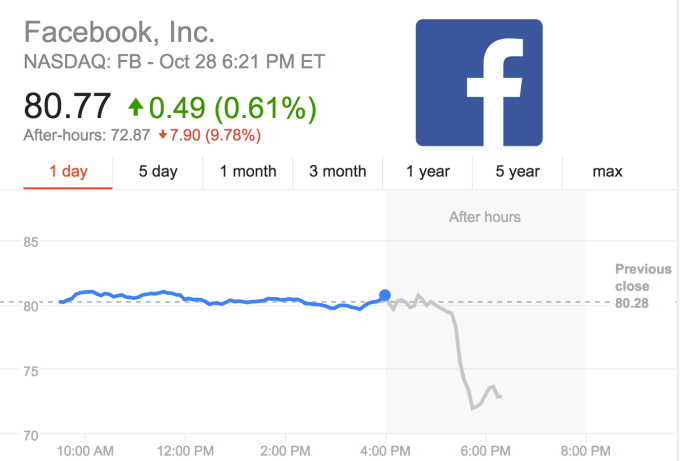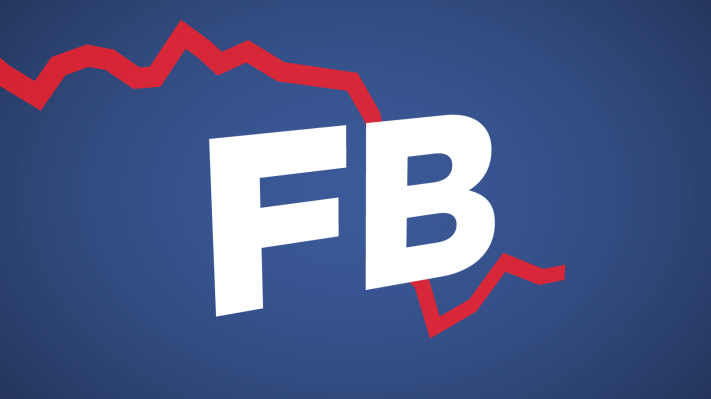Wall Street wants growth, or else. Twitter reported slow growth of 4.8 percent yesterday down from 6.3 percent last quarter and got hammered with a 9.8 percent share price drop today. And now, Facebook’s growth slowed from 3.125 percent last quarter to 2.27 percent this quarter, and now $FB is down 9.76 percent in after-hours trading. Meanwhile, Facebook broke out financials of its $22 billion WhatsApp acquisition for the first time, and they were a tad disappointing. WhatsApp brought in just $15 million in revenue in the first half of 2014 despite having 600 million users.
Facebook sidestepped the one question that could have instilled confidence…or sent it into a death spiral: teen engagement.
The company refused to break out any data about usage levels of teens, which are widely thought to be abandoning Facebook for apps like Snapchat. When asked about engagement for different demographics, Facebook’s CFO David Wehner said the company had nothing to report on specific cohorts of users.
That was probably smart. A year ago when ex-CFO David Ebersman said Facebook “did see a decrease in daily users specifically among younger teens,” the share price plummeted despite an otherwise killer quarter.

The mere absence of reassuring statements about teens combined with the slowing user growth offset Facebook’s other successes. Though it beat estimates with $3.2 billion in revenue and 66 percent of ad revenue coming from mobile, its share price is still in the gutter.
It seems that Wall Street is looking at social networks for their long-term growth potential over their short-term monetization ability. Twitter might be able to earn a good amount per user, but investors think it might not have enough of those users to warrant a higher share price.
Similarly, while Facebook has conquered much of the developed world, slowing growth indicates it may not just be a matter of time until everyone has a Facebook profile. Some people might simply not want to be more open and connected.
